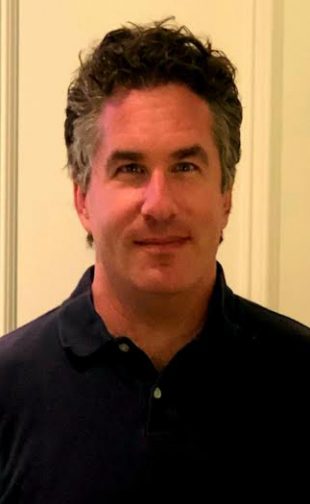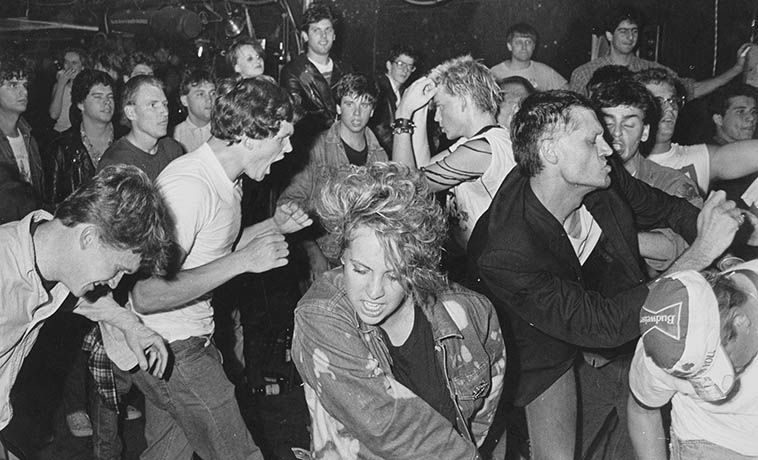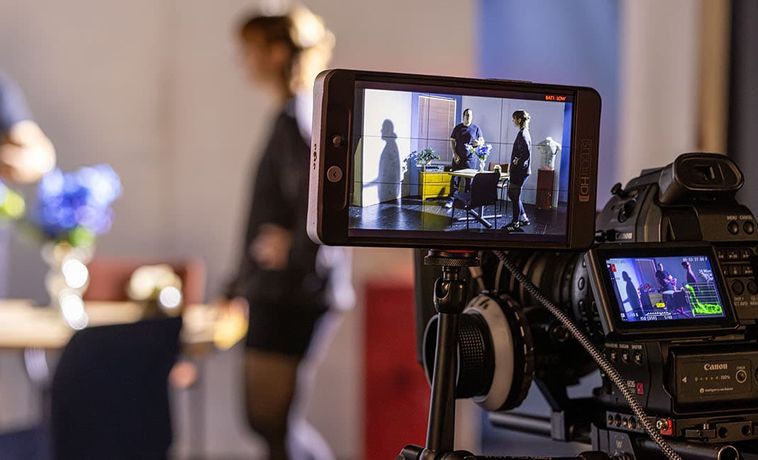Program Notes
- No GRE
- Teaching assistantships available
- Merit scholarships available. No additional application required.
Advance Media with a Master’s in Film Studies and TV Studies
- Study in a center of culture and industry — Boston is a top 10 US media market, with a vibrant film and TV community. It’s home to the Boston Film Festival, Roxbury International Film Festival, Independent Film Festival of Boston, Wicked Queer, and WGBH, one of the biggest producers of public TV in the country, among many others.
- Learn from published scholars and award-winning filmmakers—earn your master’s in film studies and TV studies with close guidance from professors published in both the academic and popular press with years of experience.
- Contribute to film and television scholarship— one of the best film graduate programs and TV graduate programs, BU COM’s MFA culminates in a graduate thesis project—an original scholarly contribution to the field of Film and Television Studies. Research and analysis are a big part of your program.
What Can You Do with a Master’s in Film Studies and TV Studies?
With a master’s in film studies and television studies (MFA) from BU COM, you will be prepared for careers in media, film and television arts, production, academia, and more.
Employers of MFA in Film and Television Alumni
Our graduates excel in diverse roles across academia, research, and the media industry.
The program’s primary focus is on scholarly research and critical analysis. Many of our alumni have been accepted into top PhD programs around the country, including:
- Boston University’s American Studies program
- Indiana University
- Temple University
- University of Illinois
- University of Iowa
- University of Oregon
- University of Pittsburgh
- University of Southern California
- University of Texas
- University of Wisconsin–Madison
Roles of MFA in Film and Television Studies Alumni
Alumni of the master’s in film studies and television studies (MFA) from BU COM have gone on to hold roles such as:
- Academic Roles:
- PhD Student
- College Instructor or Lecturer
- Curriculum Developer
- Film and TV Researcher
- Film & Television Arts:
- Script Analyst
- Film Archivist
- Audience Researcher
- Content Consultant
- Media Roles:
- Film or TV Critic
- Archivist
- Art & Culture Writer
- Media Columnist, Blogger, or Podcaster
- Programming, Curation & Marketing:
- Film/TV Festival Director
- Film Curation
- TV Programming
- Film Marketing
- Theater Marketing
- At organizations that include:
- El Gouna Film Festival (Egypt)
- GFH Financial Group (Bahrain)
- Live Nation Entertainment
- Satellite Films
- Split Tooth Media
- Taiwan Film Festival (Boston)
- Westwood One
Connect with BU COM Alumni
When you enroll in the master’s in film studies and television studies (MFA) at BU COM, you join an incredible community of inspiring and driven scholars.

COM film and TV expert on Hollywood’s love of sequels, box office predictions and the film industry’s challenges
Learn More About COM film and TV expert on Hollywood’s love of sequels, box office predictions and the film industry’s challengesHow to Get a Job in Film and TV Studies
Reputation matters when you’re looking for a job in film and TV studies. The master’s in film studies and television studies at BU COM is one of the best film graduate programs for research and analysis. BU is top ranked by Variety, TheWrap, and the Hollywood Reporter. Prepare for a career as a professional or hold a teaching assistantship to develop your skills in the classroom.
Curriculum Overview
With only four required classes, you can focus on aspects of the field that most appeal to you—and even take up to two courses from outside the program. The MFA in Film and TV Studies culminates in a graduate thesis project—an original scholarly contribution to the field of Film and Television Studies.
Topics to Explore
Explore how screen stories shape the world:
- Film & TV through time: trace the game changers, from early Hollywood to today’s TikTok-inspired shorts.
- Culture & power: unpack media’s role in politics, identity, fandoms, meme culture, and art.
- Inside the industry: consider how companies, artists, and regulations shape what gets made, how it’s made, and what is deemed successful.
- Indie & underground: go beyond Marvel to discover American indie gems, avant-garde experiments, and off-beat internet art.
- Spotlight topics: international cinema, sports media, faith on screen, queer perspectives, plus deep dives into comedy, horror, and other fan-favorite genres.
Our Areas of Expertise
You’ll benefit from our deep expertise in:
- Television history & business: binge-worthy series don’t happen by accident; learn the reasoning behind TV shifts.
- Global cinema: track new waves and breakout directors across Latin America, Europe, and Asia, and see how their stories reshape the medium.
Graduate Thesis Highlights
Here are just a few examples of recent thesis projects from students who completed their master’s in film studies and TV studies (MFA).
- Germs of the Empire: Portuguese Filmic Representations of Africa
- Surreal Postmodernism in the Films of Alejandro Jodorowsky
- “You’re not Portraying Me as the Villain this Season, Are You?”: Formula 1: Drive to Survive and Netflix’s Serialized Sports Docuseries
- An Acquired Taste: Top Chef‘s Shift from Low-Culture Televisual Appeal to High-Culture Culinary Embrace
- Menqi Zhang’s Self-Portrait Series Quiet Resistance of Womanhood in Chinese Independent Documentary
- “Everything I Think About Looks Like Here”: Navigating the Repercussions of Neoliberal Urban Planning in Harmony Korine’s Filmography
- The Indie Sensibility: Looking at A24 Prestige TV
- From Protest to Production: Revolutionary Aesthetics in Post-2011 Egyptian Cinema
- Can We Please Stop Talking About The Simpsons?: Using Bob’s Burgers and Hanna-Barbera to Recenter Conversations About Television Animation
- “Women Who Get Away With It”: Contemporary Femme Fatales Under The Patriarchy
- Regulating Blackness: Black Representation in the Marvel Cinematic Universe
- The Rise of Chinese Crime Cinema: A Surge Born in Struggle
- Bombay/Mumbai in Cinema
- Lifting the Veil: The Subversive Potential of Women and Girls in Contemporary Afghan Cinema
- Revisiting Chinese Postwar Cinema: Filmmaking as a Reflection of Trauma
- Mike Mills’ Intertextual Authorship
- To Be Young, Black, and Famous: A Melodramatic Saga — A Textual Analysis of Black Biographical Musical Miniseries
- “In Spirit, Anyway”: Genre(s) in The Rocky Horror Picture Show
- Grasping for Liveness in Found Footage Horror
- In Plain Sight: Political Dissent in 21st Century Venezuelan Genre Films
- Teen Fangirls Strike Back: Anna Todd’s After, Fanfiction Film Adaptations, and Industrial Legitimation
- Hollywood and the Myth of Meritocracy
- Cinematic Transsubjectivity: Film as Gendered Subjectivation Beyond the Clinic
- I’m Not Crazy: The History and Development of The American Gaslight Film
- Sighs from the Depths: Rendering Trauma and National History in Italian Horror Cinema
- Memory, Language, Utopia: Deferred Idylls in Three Films by Jacques Rozier
- ABC & Wall Street: The Financialization of the Television Audience, From Broadcast to Streaming
An MFA with Real Experience
Access to the industry and connection to real world experiences are among the many reasons that BU COM has one of the best film graduate programs for critical analysis.
Film Series and Archives
Enjoy Cinemathèque, BU COM’s series of screenings and conversations with film- and television-makers. Student scholars can engage in interesting and relevant conversations and also enjoy full access to BU’s Krasker film and video resource center with 16mm prints and rarities at the Mugar Memorial Library on campus.
Teaching Experience and 1:1 Mentorship
In addition to access to cross-disciplinary research opportunities, you can take on a structured teaching assistantship, designed to develop skills in the classroom. If you aspire to enter a PhD program, our one-on-one mentorship and professionalization workshops help prepare you for this next step. At BU COM, our master’s students get full attention from the faculty.
Internships, Conferences, and More
Students have interned at the Hamptons Film Festival, Women Make Movies, and with the Sydney Film Festival (through BU study abroad). Students have presented at conferences for the Society for Cinema and Media Studies and the Popular Culture Association.
Study under Celebrated Film and TV Scholars
Our distinguished faculty make BU COM’s MFA among the best film graduate programs and TV graduate programs for critical analysis. Earn your master’s in film studies and television studies under faculty with a unique mix of academic and industry experience. They are widely published worldwide across academic and popular press, offering mentorship to film and television enthusiasts bound for industry careers or further study.
Our students are smart, socially savvy, and already creating. We teach them how to turn that instinct into a career. You leave here with a strong skill set, industry contacts, and a community that stays with you long after you graduate.
Craig Shepherd, Chair and Professor, Department of Film and Television; EVP, New Business Development and Affairs, TV/Film/Brands for Zero Point Zero Production Inc.
Studying Film and TV in Boston
Earning your master’s in film studies and TV studies (MFA) in Boston is the perfect place to start your career in film and TV.
- One of the world’s most livable cities, Boston is known as America’s college town. For those who want to pursue a PhD, the collegiate community offers endless support.
- Boston is home to a significant number of entertainment and media companies where students can gain experience and launch careers in film- and television-related areas.
- A top-10 US media market, Boston is a great place to develop a critical eye for film, television, podcasts, and online media as art forms and commodities.
- Boston’s diverse community offers the perfect setting for exploring topics like critical and cultural theory, experimental media, global cinema, and all types of genres.
Comparing Programs
Learn more about our other graduate programs in communication and media, including:
- MS in Television: Choose the MS in Television if your goal is to become an industry executive. Prepare to create and sell ideas to networks and streaming.
- MFA in Screenwriting: Choose Screenwriting if you are committed to getting your written work into the world. In this program, you’ll write a minimum of seven scripts.
- MFA in Film and Television Studies: Pick this master’s in film studies and TV studies if you want to develop a critical eye for film, television, podcasts, and online media and understand their cultural impact. If students are interested in a PhD, this program serves as a useful foundation for doctoral work in media studies.
COM fact
com among top 15
of film schools in the United States, according to the Hollywood Reporter.










